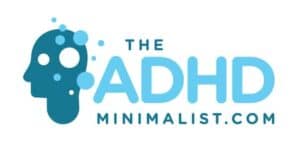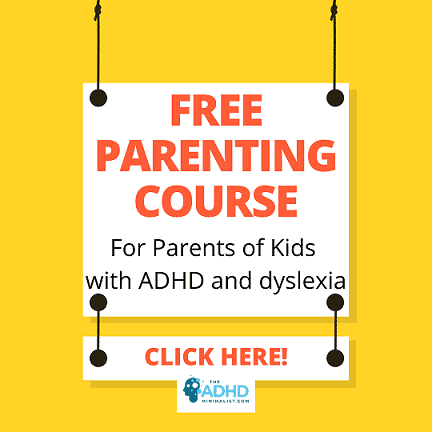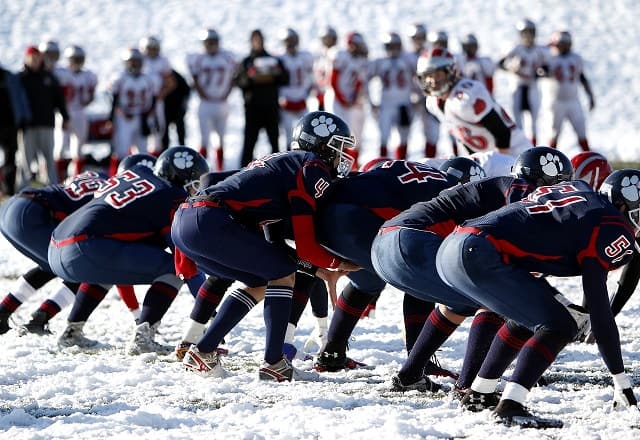
I am the mother of three kids 2 of which have ADHD. My youngest is too young for a diagnosis, but now that she started school her teachers are on the lookout. ADHD tends to run in families.
My oldest, Lage (13), has ADHD Predominately Hyper and my daughter, Maria (11), has ADHD predominately inattentive. Both have tried several sports before we found a good fit!
You can read about the sports we recommend here https://theadhdminimalist.com/18-awesome-sports-for-adhd-inattentive-add-kids-to-try/
These are the 10 Most Important Things to Take Into Consideration When You Start Searching for the Perfect Sport for your ADHD (or ADD) Child
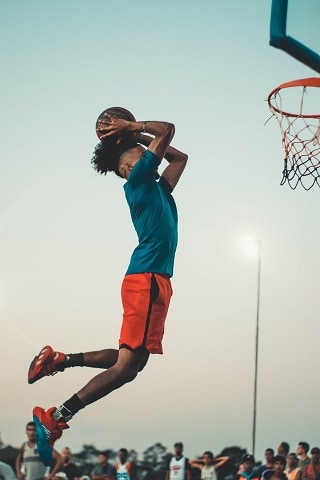
The BALL in most team sports can cause visual-spatial awareness problems, in ADHD/ADD kids.
This may not be a phenomenon that affects all ADHD kids, but research shows that kids with ADHD are often not able to pinpoint exactly where the moving ball is. This causes problems when ADHD kids need to catch the ball.
‘’Research indicates that individuals with attention deficit disorder (ADD)/attention deficit hyperactivity disorder (ADHD) may exhibit left-right asymmetric spatial attention, with deficient processing of stimuli in the left visual hemispace.’’ Cogn Behav Neurol.

The coach is extremely important! You can get the activity right and the coach wrong!
- If your child doesn’t click with the coach or if the coach has no understanding of ADHD Hyper or ADHD inattentive this will not be a good fit for your child.
- Kids with ADHD/ADD tend to get benched in team sports like soccer and basketball. Both my ADHD kids played soccer for about a year. My son (ADHD Hyper) stuck it out longer than my daughter who has ADHD inattentive.
- Maria (Inattentive) liked running around on the soccer field, but when she got close to the kid with the ball she got scared and backed off.
- Lage (Hyper) had trouble knowing where his teammates were on the field, and he often passed the ball to the other team!
- ADHD/ADD kids may enjoy practice, but never see playing time in an actual game. This can be frustrating for the child and lead to quitting that particular sport.
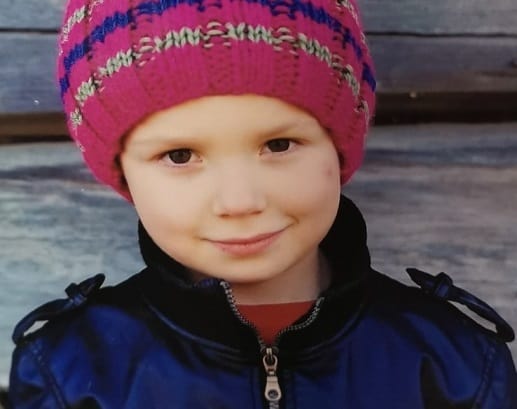
What are your child’s unique ADHD predominately inattentive, symptoms?
- My daughter (inattentive) seems to ‘Space out’ during school and during sports in physical education class. When her teammates want to pass her the ball her mind is ‘Out in Left Field’!
- Fast-moving team sports were not a good fit for her. Even though she is physically fit and a fast runner.
- My son (Hyper) is very independent, always thinks he is right and has trouble making friends. None of these characteristics is a good fit for team sports.

‘The Bench’ can be a problem for ADHD (ADD) kids.
Most team sports require teammates to take turns sitting on the bench as they rotate players.
- Kids with ADHD Predominately Hyper can seldom sit still on the bench.
- This downtime often leads to rowdiness if there is no coach’s assistant or volunteer who can keep the bench under control.
- Even though kids with ADD are often less rowdy than most kids with ADHD they can still have trouble sitting still and paying attention to the game.
- My daughter (Inattentive) often squirms and fidgets in her chair. Especially when required to wait when she is not given anything to do.
- Most coaches would argue that kids on the bench have something to do! They need to pay attention to the game so they are up to speed if the coach asks them to play.
- Unfortunately, this task of paying attention is nearly impossible for ADD and ADHD kids!
- Younger kids may get equal playing time despite their abilities, but as kids get older more playing time is given to the gifted players and there is more emphasis on winning. This means that most ADD kids will spend even more time on the bench.

Not all team sports are bad for ADHD/ADD kids.
Sports like track and field, horseback riding, and swimming all have an emphasis on the individual, but often give points to the team as a whole based on each individual’s performance.
- Most of these types of team sports allow you to enter several different activities at sporting events. In some events, you compete as an individual and in others you work as a team often in the form of a relay.
- Entering different events can be a good way to keep ADHD kids interested and paying attention.
I competed in track and field in junior high and I enjoyed the fact that when I was not warming up and competing myself, I was basically free to do what I wanted during competitions.
I could watch my teammates compete while eating lunch, take a walk, or talk on the phone. The only thing I needed to remember was when my next event was.
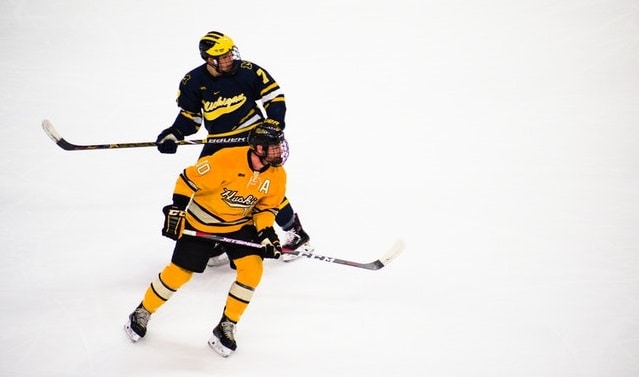
Team sports where the individual is always in motion can be a good outlet for ADHD (ADD).
This concept works as long as kids don’t spend long periods on the bench.
Sports such as hockey, basketball, handball, or soccer require constant motion, and individuals with high energy often get the most playing time.
If your child wants to try a team sport let him or her try. If it’s not a good fit your child will let you know.

It’s hard for parents to know when to push ADHD (ADD) kids, who get bored easily, to stick with a sport.
Sometimes the activity may genuinely not be working for your child and he/she has a hard time putting this into words.
- Communicate with your child before he/she tries a new sport or activity that he/she is going to go to a predetermined number of practices.
- After he/she holds up their end of the bargain by going to the practices you can talk with your child about the activity and see if this is a good long term fit for your child.
- If your child likes the activity and wants to continue great! If that is the case I would encourage you to be clear that your child is committing to that activity and they will be going every week.
- Don’t let them drop out because they just don’t feel like it six months down the road.
- Don’t let them decide if they want to go or not every week.
A few exceptions to this rule would be if your child is scared, getting bullied, if there are other inappropriate things taking place, or if it becomes obvious after the initial trial period that the coach is frustrated with or doesn’t understand your child.
When I was a kid I took swimming lessons every summer. When I got into the older group there were not many kids in my class and the swimming instructor yelled at us.
I was one of the youngest in this group thrown in among aspiring lifeguards who needed to pass the requirements to make it into the more advanced group.
When the instructor yelled at us and threatened to put a contraption on our heads to keep our heads in the right position while swimming a particular stroke I got scared!
I was in the class to learn not to pass a test or be yelled at. It took some convincing, but I managed to talk my parents into letting me quit halfway through.
There may have been alternatives to quitting, like having one of my parents sit in on the classes, but this seemed like an embarrassing option.

Take a look at your family’s schedule before you start looking for extracurricular activities.
If there are days that will not work don’t let your child try sports that practice on those days.
How many activities/sports are available after school depends largely on where you live.
- In the USA many extracurricular activities and sports are offered at school. Often a teacher doubles as a coach and kids can try out for school teams free of charge. This is a wonderful solution for parents who work and can not drive their kids to activities directly after school.
Often schools only offer a set number of sports/activities depending on the school’s size and the teacher’s credentials.
- For advanced dance classes, most martial arts, and sports that are more common in Europe like curling or handball parents need to find a studio or club outside of school and pay for lessons. Often these take place in the evening and require mom or dad to be the taxi.
- In Europe, most schools do not have sports. Often there is a local sports club that offers whatever parents and/or trained coaches are willing to donate their time for. To play a sport, you have to join the club which usually costs a low fee paid every six months.
Schools in Europe often offer music lessons and dance for free during school hours. More advanced dance lessons can be paid for through a dance studio.
Most extracurricular activities in Europe take place in the evening and require parents to drive the children to and from the activity.
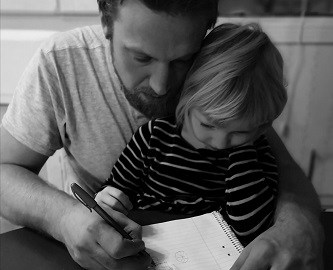
The Most Important Person in your ADHD child’s life is YOU the Parent
Dr. Gabor Maté reminds us of this several times in his book Scattered Minds.
He goes on to explain that most ADHD children need more of their parents’ attention and that the modern families’ tendency to cram in activities all week is contributing to attention-starved children who tend to exhibit symptoms of anxiety and inflexibility!
If you haven’t read Scattered Minds I encourage you to read it. Dr. Gabor Maté has a different approach to ADHD than most doctors.
Balance is key in life and only you know how adding extra activities will affect your family.
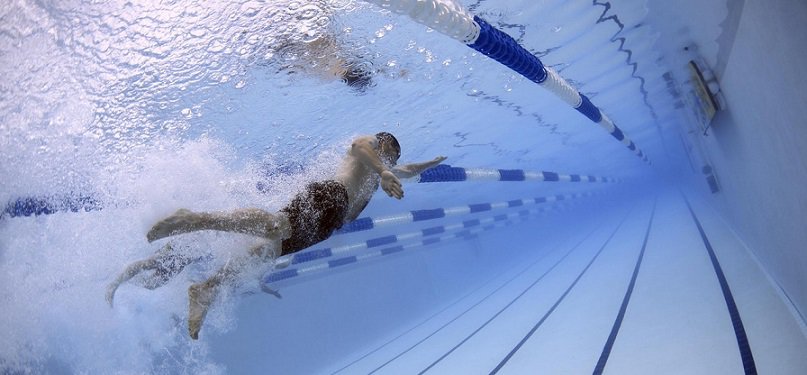
Older children who compete in sports while taking medication need to provide the coach with the correct documentation.
Often it’s not a problem to take ADHD medication while participating in sports, but you need to be upfront with your coach.
Your coach needs to be provided with documentation signed by your doctor explaining your diagnosis and your need for medication.
You may need to provide information about the dose your child is taking and let the coach know when your doctor raises the dose.
This is usually not an issue for younger kids, but it can affect junior high and high school students who participate in state competitions as well as college athletes.
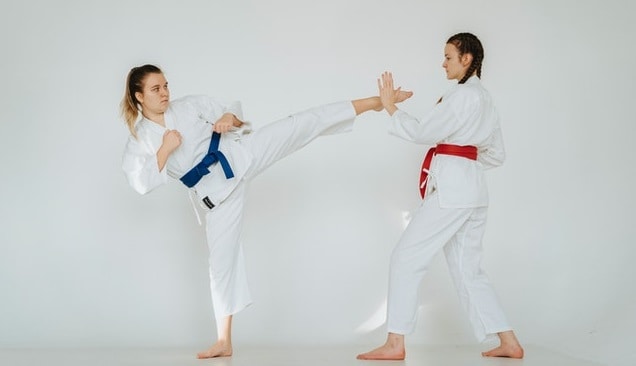
ADHD (ADD) medications may need to be adjusted to fit your child’s sports schedule.
Many ADHD medications are given early in the morning to help kids perform their best during school hours. This can cause a problem when the meds leave the child’s body in the middle of practice.
My son had adverse reactions when ADHD drugs left his body. He had panic attacks, became highly stressed, paced the floor, talked incessantly, and demanded all of my attention! Reactions like this are not conducive to participating in afterschool sports!
Even kids who do not have such extreme reactions to medications may need to have the time when their medication is active extended till after practice in order for them to concentrate adequately on sports.
This is easiest to correct if your child does sports directly after school. My son was recommended a refill of his medication that he was to take in the afternoon. This extended the time the drug was active and pushed any anxiousness or hyperactivity to later in the evening.
This didn’t end up being a good option for us and we eventually switched medication to something that doesn’t completely leave his system, but I know of other children who felt that the extra pill was highly effective.

Your child is unique! You can not, as they say in Swedish, Pull Everyone Through the Same Comb!
Kids with ADHD are just like all other kids. They have their strengths and weaknesses, their likes, and dislikes.
Because not all Kids with ADHD or even not all kids with ADHD predominately inattentive are the same they can not all be expected to thrive in the same activities or like the same sports.
Some kids may have a love of music and participating in a musical or taking music lessons is something they try extra hard at, while for another child with ADHD music lessons may be a complete flop!
You know your child best
Go through my list and write down the suggestions that you think would suit your child then check that list with what is available in your area.
By narrowing the list down your keep your child from being overwhelmed by all the options.
Only talk to your child about the activities when you have the facts about what is available, what your family can afford, and you know the times will work in your schedule.
I highly disappointed my son when I thought a particular activity would work out and it didn’t! Because he has ADHD it was hard for him to let go of this frustration.
Do yourself a favor and check the facts first! If nothing feasible interests your child then go back to the list and check the activities that you didn’t think your child would like. You might be surprised.

Think outside the BOX!!!
Is there a way you can arrange for someone you know to teach your child something?
Do you have the budget to pay them or can you make a trade where you teach something to your neighbor’s child every week while your child goes to the neighbors and learns a new skill?
To read about our favorite Sports for ADHD kids click here! 18 Awesome Sports for ADHD Inattentive (ADD) Kids to Try These are great sports of ADHD Hyper and ADHD inattentive!

Conclusion
After reading several studies and checking recommendations from my children’s doctors it seems that everyone agrees that physical activity is extremely beneficial for ADHD kids.
Physical activity is just as beneficial for ADHD predominately hyper as for ADHD predominately inattentive.
Every child with ADHD has a unique combination of symptoms and complications.
There may be some trial and error in selecting a sport or activity. My kids tried soccer (football) first because that is a really popular kids’ sport where we live, but it wasn’t a good fit for either of them.
My son tried hockey for 6 months, but he wouldn’t let us leave him at practice. We had to stand around freezing and waiting for him to be done! He eventually decided that Hockey was not for him.
Even though many recommend Hockey as a traditional team sport that suites some ADHD kids it doesn’t suit all ADHD kids no sport does.
I hope this post will help you think through the pros and cons of different sports and give you a better understanding of what sports your child should try.
These are my favorite posts!
Help ADHD (ADD) kids clean their rooms and stay organized
What To Do If Your ADHD child Is A Pack Rat!
What every teacher should know about the ADHD child
12 issues parents of ADHD children need to fix in themselves
